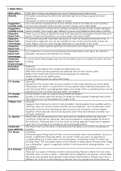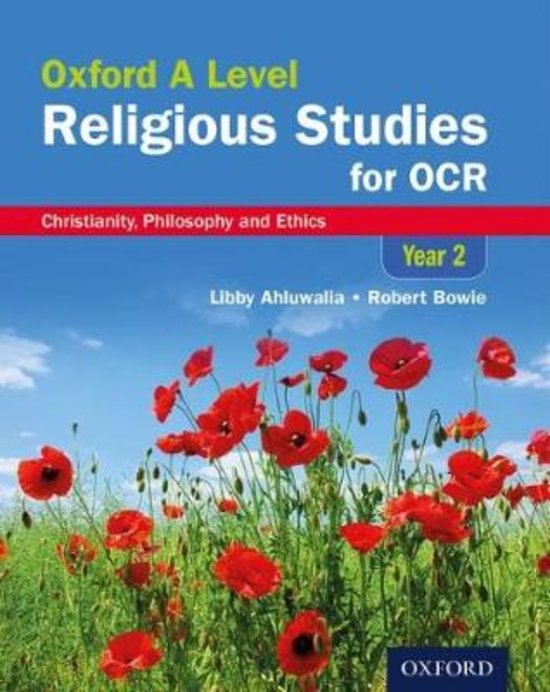-
1. Study guide - Ocr religious studies (h173, h573): philosophy of religion revision notes - 6 the pro...
-
2. Study guide - Ocr religious studies (h173, h573): philosophy of religion revision notes - 5 religio...
-
3. Study guide - Ocr religious studies (h173, h573): philosophy of religion revision notes - 4 the exi...
-
4. Study guide - Ocr religious studies (h173, h573): philosophy of religion revision notes - 3 the exi...
-
5. Study guide - Ocr religious studies (h173, h573): philosophy of religion revision notes - 2 soul, m...
-
6. Study guide - Ocr religious studies (h173, h573): philosophy of religion revision notes - 1 ancient...
-
7. Study guide - Ocr religious studies (h573): philosophy of religion revision notes - 9 religious lan...
-
8. Study guide - Ocr religious studies (h573): philosophy of religion revision notes - 8 religious lan...
-
9. Study guide - Ocr religious studies (h573): philosophy of religion revision notes - 7 the nature or...
-
10. Study guide - Ocr religious studies (h573): religion and ethics revision notes - 9 sexual ethics
-
11. Study guide - Ocr religious studies (h573): religion and ethics revision notes - 8 conscience
-
12. Study guide - Ocr religious studies (h573): religion and ethics revision notes - 7 meta ethics
-
13. Study guide - Ocr religious studies (h173, h573): religion and ethics revision notes - 6 business e...
-
14. Study guide - Ocr religious studies (h173, h573): religion and ethics revision notes - 5 euthanasia
-
15. Study guide - Ocr religious studies (h173, h573): religion and ethics revision notes - 4 utilitaria...
-
16. Study guide - Ocr religious studies (h173, h573): religion and ethics revision notes - 3 kantian et...
-
17. Study guide - Ocr religious studies (h173, h573): religion and ethics revision notes - 2 situation ...
-
18. Study guide - Ocr religious studies (h173, h573): religion and ethics revision notes - 1 aquinas an...
-
19. Study guide - Ocr religious studies (h573): developments in christian thought - 12 liberation theol...
-
20. Study guide - Ocr religious studies (h573): developments in christian thought - 11 the challenge of...
-
21. Study guide - Ocr religious studies (h573): developments in christian thought - 10 gender and theol...
-
22. Study guide - Ocr religious studies (h573): developments in christian thought - 9 gender and societ...
-
23. Study guide - Ocr religious studies (h573): developments in christian thought - 8 religious plurali...
-
24. Study guide - Ocr religious studies (h573): developments in christian thought - 7 religious plurali...
-
25. Study guide - Ocr religious studies (h173, h573): developments in christian thought - 6 christain m...
-
26. Study guide - Ocr religious studies (h173, h573): developments in christian thought - 5 christian m...
-
27. Study guide - Ocr religious studies (h173, h573): developments in christian thought - 4 the person ...
-
28. Study guide - Ocr religious studies (h173, h573): developments in christian thought - 3 knowledge o...
-
29. Study guide - Ocr religious studies (h173, h573): developments in christian thought - 2 death and t...
-
30. Study guide - Ocr religious studies (h173, h573): developments in christian thought - 1 augustine's...
-
31. Essay - Religious studies essay - evaluate freud's approach to conscience
-
32. Essay - Religious studies essay - assess the view that 'good' does not refer to any natural p...
-
33. Essay - Religious studies essay - critically consider whether aristotle was successful in exp...
-
34. Essay - Religious studies essay - 'richard's swinburne's account of god in time is unconvinci...
-
35. Essay - Religious studies essay - 'reuther's views on gender in theology are more convincing ...
-
36. Essay - Religious studies essay - 'christianity is not the only means to salvation' discuss
-
Show more





